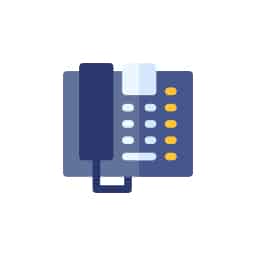Which Type of Entrepreneurship is Right for You?
Table of Contents
- What Are the Different Entrepreneur Personality Types?
- Common Characteristics of Successful Entrepreneurs
- 11 Types of Entrepreneurship to Choose From
- How Do You Identify Your Entrepreneur Type?
- Determining the Right Business Ventures for You
- Get Motivated to Start Your New Entrepreneurial Journey
- Small Business Resources for Business & Personal Growth
How do you determine your entrepreneur type?
The three main types of entrepreneurs are:
- Innovator Entrepreneurs come up with unique ideas for products and services
- Hustler Entrepreneurs are highly innovative and often willing to take risks on new ideas to succeed
- Imitator Entrepreneurs take existing ideas and improve on them, often innovating new ways to do things that find success in the market
Sometimes it feels like you didn’t choose the entrepreneur life, but the entrepreneur life chose you. Either way, figuring out which type of entrepreneurship is right for you may take some thought. Your first, and perhaps most important, business decision is choosing which type of business to pursue, and chances are you already have a good idea about what that might be. However, knowing your entrepreneur type will also help you narrow down your options, and decide what kind of operation might be the best fit for you.
In this article, we’ll explore the various types of entrepreneurship, and help you determine which is best suited to your skills, interests, and lifestyle, giving you the information you need to make an informed decision. Read on to find out which type of entrepreneurship is right for you, and launch your new venture with confidence.
LinkedPhone serves the small business community with local & toll-free business numbers that work with your cell phone, desk phone, & laptop. Add a 2nd phone number to your cell phone with our mobile app. Talk & text with clients on the go. Add team members too. Finally break free from the desk phone. At LinkedPhone, freedom rings! 🔔📱💻☎️

What Are the Different Entrepreneur Personality Types?
The different entrepreneur types are similar to personality types. Each type has their own unique characteristics, strengths and weaknesses. Here are some of the most common entrepreneur examples:
-
- Innovator Entrepreneur: Innovators are creative types who come up with unique ideas for products and services and base their businesses around these ideas. These types of entrepreneurs challenge the status quo. They often think outside the box, take risks, and are incredibly passionate about their business ideas. Their vision of innovation drives them. Technology leaders like Bill Gates, Steve Jobs, and Jeff Bezos are some of the best known examples of innovator entrepreneurs.
- Hustler Entrepreneur: Hustlers are highly motivated and often willing to take risks to get ahead. They may have to start small, but will hustle and ceaselessly work hard to grow their business and achieve their dreams. They will weather storms, handle rejection after rejection, and pitch their ideas endlessly. Networking is often one of the hustler’s greatest tools. Mary Kay Ash, founder of Mary Kay Cosmetics, Inc., is a classic example of a hustler entrepreneur.
- Imitator Entrepreneur: Imitator entrepreneurs are a mix of the innovator and hustler. They take existing ideas and improve on them. This type of entrepreneur may be more risk averse and prefer the stability of an existing idea, but they are confident problem solvers who are always looking for ways to improve on what already exists. The best of them take the mediocre and make it great. A restaurant franchise owner is a perfect example of an imitator.
Common Characteristics of Successful Entrepreneurs
Successful entrepreneurs possess a wide range of skills and qualities that contribute to their success. Among the most valuable skills to succeed as an entrepreneur or small business owner are a clear vision, strong communication, determination, creativity, and a willingness to take risks.
Clear Vision
Every entrepreneur and small business needs a good company and vision statement. Having a clearly defined vision of what they want to accomplish based on current trends and future growth possibilities is one of the most common characteristics of successful entrepreneurs, and possibly the most important factor for success in all types of business ventures. A clear vision is what gets the ball rolling and the path forward well-defined for meeting future goals.
Strong Communication
A vision needs to be shared to get anywhere, and being able to communicate one’s vision effectively to others is an important characteristic of successful entrepreneurs. Those with the best communication skills are able to share their vision so that others can visualize it themselves and find personal satisfaction in its success.
Determination
Successful entrepreneurs have the determination to persevere when challenges arise, stay focused on their goals, and to never give up. They are able to make difficult decisions, handle setbacks, and be resilient in the face of obstacles.
Creativity
Successful entrepreneurs are able to come up with innovative solutions to problems and find ways to differentiate themselves from their competitors. They think outside the box and come up with unique ideas that give them a competitive edge. They are creative in various ways, exploring original ideas and transforming existing ones.
Willingness to Take Risks
Successful entrepreneurs have to take risks – to invest in their business, try out new ideas, and take all kinds of calculated risks. Staying ahead of the competition and remaining competitive in the market requires the weighing of risks versus rewards and success is often found in tandem with risk taking.

11 Types of Entrepreneurship to Choose From
There are many different types of practical entrepreneurship from which to choose, and your choice will likely end up aligning with your entrepreneur personality type. Here are a few of the most common entrepreneurship examples:
-
- Service-Based Entrepreneurship: This type of entrepreneurship focuses on providing a service to customers. Examples include web design, consulting, or personal training.
- Product-Based Entrepreneurship: This type of entrepreneurship focuses on creating and selling a physical product. Examples include clothing, electronics, or food.
- Online Entrepreneurship: This type of entrepreneurship focuses on selling products or services online. Examples include selling ebooks, hosting webinars, or running an online store.
- Scalable Startup Entrepreneurship: This type of entrepreneurship focuses on launching a scalable startup. Examples include launching a mobile application or creating a software platform.
- Large Company Entrepreneurship: This type of entrepreneurship focuses on launching a large company. Examples include launching a manufacturing company or a construction company.
- Imitative Entrepreneurship: This type of entrepreneurship focuses on imitating a successful business model. Examples include creating a copycat version of a successful product or service.
- Innovative Entrepreneurship: This type of entrepreneurship focuses on creating something new and innovative. Examples include launching a revolutionary product or developing a new technology.
- Buyer Entrepreneurship: This type of entrepreneurship focuses on buying and selling products to turn a profit. Examples include buying and selling antiques or investing in real estate.
- Researcher Entrepreneurship: This type of entrepreneurship focuses on researching and developing new products. Examples include researching new treatments for diseases or developing new technologies.
- Hustler Entrepreneurship: This type of entrepreneurship focuses on taking advantage of opportunities as they arise. Examples include taking advantage of market trends or leveraging connections to gain access to resources.
- Social Entrepreneurship: This type of entrepreneurship focuses on creating social change. Examples include launching a charity organization or starting a business to solve a societal problem.
How Do You Identify Your Entrepreneur Type?
Successful entrepreneurs possess a wide range of skills and qualities that contribute to their success. Among the most valuable skills to succeed as an entrepreneur or small business owner are a clear vision, strong communication, determination, creativity, and a willingness to take risks.
-
- Understanding your individual strengths and weaknesses is the first step towards success. What skills do you have that will help you succeed? Do you have a skill or expertise that you could use to launch a business?
- Consider your passion. What are you most passionate about? What types of activities do you enjoy? What will keep you determined and inspired to wake up in the morning and be self motivated? Do you have a strong desire to make a difference in the world?
- Determine your preferences for which type of business you want to start. Do you want to create a product or provide a service? Are you interested in a small business or do you prefer growing into a larger company? Are you a physical business or is online business your preference?
- Evaluate your risk tolerance. Are you willing to take risks to achieve your goals, or would you rather play it safe?
- Think about your business and personal goals. What type of lifestyle do you want to lead? Do you want to focus on creating a business that will eventually be sold, or do you want to build a business that you can continue to grow and develop?

Determining the Right Business Ventures for You
When it comes to determining the right types of business ventures for you, there are several factors to consider. First, think about your skills and interests. What do you excel at? What do you enjoy doing? What do you have the most knowledge about? These are important things to consider as these will be the foundation for what type of business venture you choose.
Next, look at the existing market and identify potential opportunities that you can capitalize on. Consider what types of products or services are in demand and figure out how you can create a unique business offering that people will be drawn to. This requires research and planning, so don’t be afraid to take your time and really think through the options.
Also, consider the resources you have access to. Do you have money to invest in a venture? Do you have knowledgeable people you can team up with? Do you have the right skills and experience to make the venture successful? These are all important questions to ask yourself as they will help you narrow down your choices.
Finally, think about your goals and objectives. What do you want to accomplish with your business? What kind of lifestyle do you want to lead? What kind of impact do you want to have? Having a clear sense of what you want to achieve will help you determine the right types of business ventures for you.
Choosing the right type of business venture for you is an important and challenging task. With the right preparation and research, you can confidently launch a successful business and achieve your entrepreneurial dreams.
Get Motivated to Start Your New Entrepreneurial Venture
Identifying which type of entrepreneurship is right for you is the first step to determining the right type of business venture and launching a successful business. It can provide you with a roadmap for success to achieve your business goals and become a successful entrepreneur.
For some extra motivation, take a look at some of the inspirational quotes for entrepreneurs that we’ve compiled, or check out the advice we put together on starting a small business after the pandemic, which is worth thinking about considering the extraordinary economic times we’re living through.
Once you’ve decided which type of entrepreneurship is right for you, get your own virtual business calling system to stay in touch with customers, clients, and vendors, and to help manage your business from anywhere. Sign up for a 7-day free trial from LinkedPhone to try out all the great professional calling features we offer, using any device, available at a low monthly cost, and get started on your new business venture today!
Business Growth Toolkit
Get the latest thought leadership insights on growing your business plus occasional LinkedPhone updates. We respect your inbox!
Small Business Resources
A special high five to Faith Dickens for her outstanding research and contributions to this article. We love working with and supporting like-minded entrepreneurs. Thank you Faith! ❤️
Get In Touch
We would love to hear from you.
Please contact us at any time with questions or feedback.
























